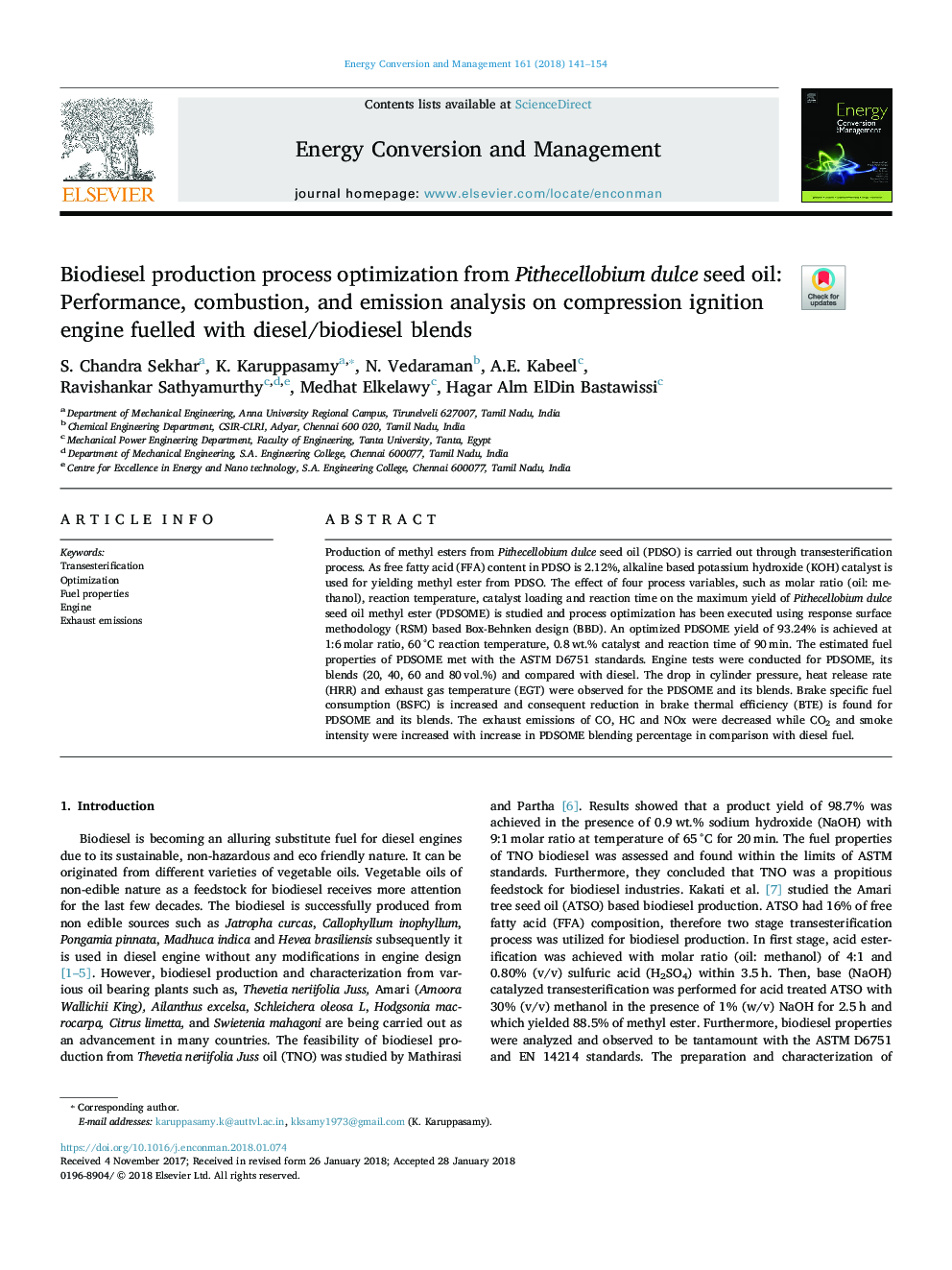| Article ID | Journal | Published Year | Pages | File Type |
|---|---|---|---|---|
| 7158948 | Energy Conversion and Management | 2018 | 14 Pages |
Abstract
Production of methyl esters from Pithecellobium dulce seed oil (PDSO) is carried out through transesterification process. As free fatty acid (FFA) content in PDSO is 2.12%, alkaline based potassium hydroxide (KOH) catalyst is used for yielding methyl ester from PDSO. The effect of four process variables, such as molar ratio (oil: methanol), reaction temperature, catalyst loading and reaction time on the maximum yield of Pithecellobium dulce seed oil methyl ester (PDSOME) is studied and process optimization has been executed using response surface methodology (RSM) based Box-Behnken design (BBD). An optimized PDSOME yield of 93.24% is achieved at 1:6â¯molar ratio, 60â¯Â°C reaction temperature, 0.8â¯wt.% catalyst and reaction time of 90â¯min. The estimated fuel properties of PDSOME met with the ASTM D6751 standards. Engine tests were conducted for PDSOME, its blends (20, 40, 60 and 80â¯vol.%) and compared with diesel. The drop in cylinder pressure, heat release rate (HRR) and exhaust gas temperature (EGT) were observed for the PDSOME and its blends. Brake specific fuel consumption (BSFC) is increased and consequent reduction in brake thermal efficiency (BTE) is found for PDSOME and its blends. The exhaust emissions of CO, HC and NOx were decreased while CO2 and smoke intensity were increased with increase in PDSOME blending percentage in comparison with diesel fuel.
Related Topics
Physical Sciences and Engineering
Energy
Energy (General)
Authors
S. Chandra Sekhar, K. Karuppasamy, N. Vedaraman, A.E. Kabeel, Ravishankar Sathyamurthy, Medhat Elkelawy, Hagar Alm ElDin Bastawissi,
